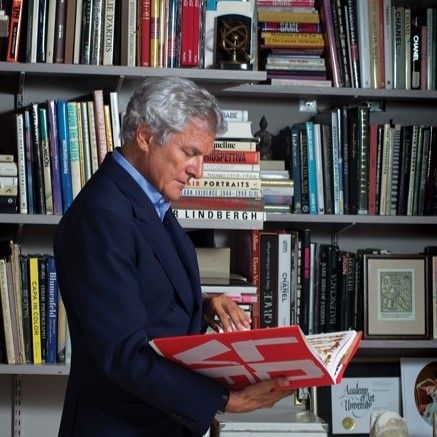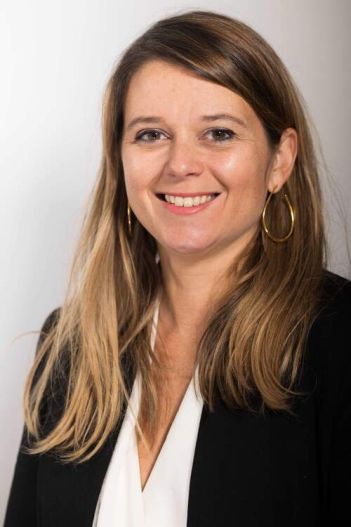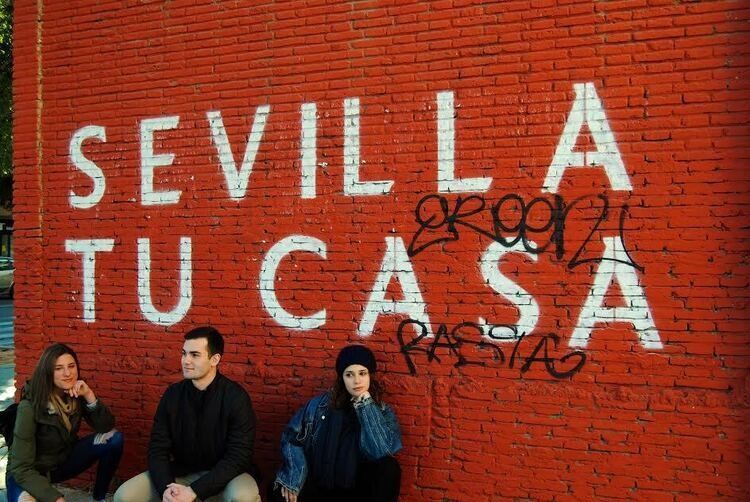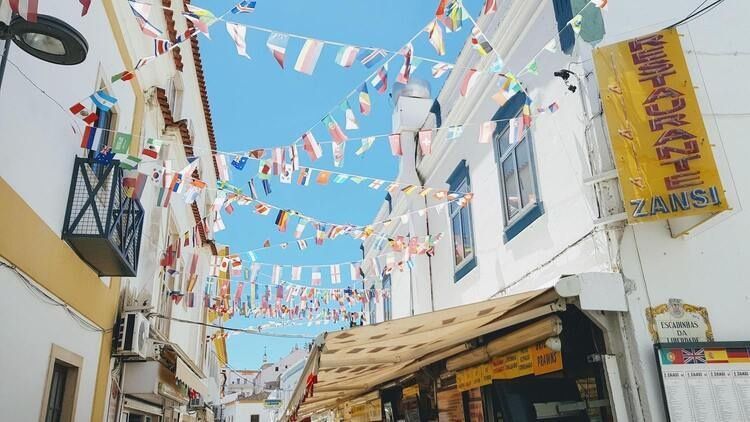Institute for European Studies
New Alain Elkann Collection at the Cornell Library

IES faculty associate Kora von Wittelsbach, senior lecturer in Romance Studies, led the effort to bring the Alain Elkann Collection to the Cornell Library.
"I am proud and honored to have given a large part of my estate to the Cornell University Library - manuscripts, letters, drafts of my novels, interviews and short stories, first editions of my works, as well as the original tapes of my interviews, including those that were the basis for my long volume of conversations with Alberto Moravia," Italian writer, journalist and public intellectual Alain Elkann told us. "I hope that my manuscripts and other documents can be of help to Cornell faculty and students who conduct research in Italian literature, especially Italian Jewish literature. I am equally proud that it is my U.S. translator, Kora von Wittelsbach, someone very familiar with my work, who regularly teaches it at Cornell, both in her Romance Studies and her Jewish Studies courses."
Von Wittelsbach, who with the co-sponsorship of the Department of Romance Studies, the Jewish Studies Program, the French Studies Program and the Society for the Humanities, in the fall of 2019 organized Alain Elkann's visit and a talk at Cornell, first approached the Library about the possibility of acquiring the collection at that time. Her efforts to bring the Elkann papers to Cornell were enthusiastically supported by colleagues from Romance Studies and Jewish Studies, and by the Cornell Institute for European Studies.
"Alain Elkann's fiction is significantly informed by twentieth-century European history, especially by the experiences of Italian and French Jews, Elkann's forebears, at home and abroad. His journalistic writings, however, and the scores of interviews he has conducted with artists, political or religious figures and famous thinkers, exhibit unlimited curiosity about the richness of human endeavor," said Patrick Stevens, Curator in the Rare and Manuscript Collections and Selector for Jewish Studies.
Alain Elkann's next visit to Ithaca is planned for March 2024, to coincide with the inauguration of this collection of papers at Cornell University Library.
Additional Information
Program
Faculty Info Session: Global Grand Challenge Call for Proposals

February 12, 2024
12:00 pm
Learn about Cornell's new Global Grand Challenge: The Future and how you can propose a research or curricular project.
Global Cornell is opening what will be The Future’s only call for proposals. Interdisciplinary teams of faculty and researchers from all Cornell colleges, schools, and departments are encouraged to identify a research issue of global importance and plan a path to a successful alternative future.
Teams may apply for research project support up to $150,000 per year for two years. Stand-alone curricular projects are eligible for up to $20,000 per year for two years.
Deadline for letters of intent to apply (1 page): February 26, 2024Deadline for full proposals (5–7 pages): May 6, 2024Register here to join the virtual info session. The session will include an opportunity to ask questions and network with others interested in finding collaborators.
The information session slides and Q&A will be posted online after the event.
Additional Information
Program
Reppy Institute for Peace and Conflict Studies
East Asia Program
Southeast Asia Program
Latin American and Caribbean Studies
Institute for African Development
Institute for European Studies
South Asia Program
Einaudi Center for International Studies
The Hidden City

February 20, 2024
7:00 pm
Willard Straight Hall Theatre
Victor Moreno's The Hidden City (La cuidad oculta) is a dark, unsettling, almost hallucinogenic journey into an unknown world: the labyrinthine sewer system beneath the city of Madrid, Spain. Filmed underground over several years, the film offers unprecedented access to the vast network of tunnels, sewers, machinery, and infrastructure that at once sustainsÑand stands in stark contrast toÑthe life above it. With otherworldly cinematography and sound design reminiscent of Kubrick's 2001: A Space Odyssey and other sci-fi classics, The Hidden City is a contemporary symphony of an underground metropolis that demands to be heard in a darkened theatre and seen on the big screen.
Additional Information
Program
Einaudi Center for International Studies
Institute for European Studies
FLIP Teacher Orientation

February 5, 2024
3:00 pm
Uris Hall, G02
The Einaudi Center’s Foreign Language Introduction Program (FLIP) is heading into local communities to teach children about world cultures and languages. FLIP aims to connect our diverse Cornell community to K-12 students at local schools, libraries and community centers in Upstate New York. Cornell volunteer teachers will have the opportunity to share short introductory lessons on the foreign languages and cultures they are passionate about. Volunteer teachers should have at least an intermediate knowledge of their chosen language.
Register to attend either the Feb. 1 orientation in person or the Feb. 5 orientation over Zoom.
Additional Information
Program
Einaudi Center for International Studies
East Asia Program
Southeast Asia Program
Latin American and Caribbean Studies
Institute for African Development
Institute for European Studies
South Asia Program
Information Session: Global Internships in Africa

January 30, 2024
4:45 pm
Uris Hall, G08
The Institute for African Development (IAD) offers 6-8 week summer internships that let you undertake challenging practical fieldwork in Ghana, Zambia, or Liberia. If you're a sophomore or junior, join this info session to find out how you can apply. Applications for Global Internships are due February 1.
Register for the information session.
***
The Mario Einaudi Center for International Studies hosts info sessions for graduate and for undergraduate students. To learn more about funding opportunities, international travel, research, and internships, view the full calendar for spring semester sessions.
Additional Information
Program
Einaudi Center for International Studies
Reppy Institute for Peace and Conflict Studies
East Asia Program
Southeast Asia Program
Latin American and Caribbean Studies
Institute for African Development
Institute for European Studies
South Asia Program
Sea Crossings and Migration Policy Developments in Europe

April 11, 2024
12:15 pm
Martha Van Rensselaer Hall, 1102
Sarah Wolff is Professor in International Studies and Global Politics at Leiden University in the Netherlands. Prior to that, she held a Professor position in European Politics and International Relations at Queen Mary University of London where she also directed the Centre for European Research (2017-2023) and was awarded a NEXTEUK Jean Monnet Chair of Excellence (2020-2023) on the future of EU-UK relations. She was the Director of the QMUL MA in International Relations in Paris (2021-2023). Her research concentrates on EU and UK migration and asylum policies, EU-Middle East and North Africa, EU and British foreign policies, as well as EU’s policies on gender and religion abroad. She is on the Editorial Board of the journal Mediterranean Politics. Her award-winning book Michigan University Press on ‘Secular Power Europe and Islam: Identity and foreign policy’(best book award 2023 European Union Studies Association) was conducted thanks to a Fulbright-Schuman and a Leverhulme research grants. She is Visiting Professor at the College of Europe and on the steering committee of two major professional associations in European studies UACES and of ECPR SGEU.
About the Speaker
Sarah Wolff is Professor in International Studies and Global Politics at Leiden University in the Netherlands.
Host and Sponsors
This event is hosted by the Migrations initiative, part of Global Cornell and cosponsored by the Institute for European Studies.
Additional Information
Program
Einaudi Center for International Studies
Institute for European Studies
Semida Silveira

Professor of Practice, Systems Engineering
Semida Silveira is a Professor of Practice in the Systems Engineering Program and a member of the CEET Council of Engineers for the Energy Transition. Her goal is to contribute to science-based societal transformation, a global low-carbon circular economy, and sustainable development through transdisciplinary research, education, and actions with impact. She has three decades of experience working with sustainability, particularly energy and climate policy in the European and developing countries' context.
Additional Information
Info Session: Health in Context with CASA Sevilla in the Fall

February 2, 2024
3:00 pm
On the CASA Seville program take your Spanish to the next level with undergraduate university courses in Spanish, project-based learning, and individual mentoring. In the fall semester, learn about health and healthcare in Spain in the classroom and beyond. Hear from Eva Infante, Director of CASA Sevilla, about the new course offered through the center, Anthropology of Health and Healthcare in Spain, with special guest speakers and course-related visits to a health center and bio-medical research facility, along with volunteer opportunities with populations with special health needs (immigrants, visually impaired people, and survivors of domestic abuse). Join us for a brief presentation in English followed by Q&A.
Attend this info session virtually.
Additional Information
Program
Institute for European Studies
Information Session: Fulbright U.S. Student Program for Undergraduates

March 13, 2024
4:45 pm
The Fulbright U.S. Student Program supports U.S. citizens to study, conduct research in any field, or teach English in more than 150 countries. Students who wish to begin the program immediately after graduation are encouraged to start the process in their junior year. Recent graduates are welcome to apply through Cornell.
The Fulbright program at Cornell is administered by the Mario Einaudi Center for International studies. Applicants are supported through all stages of the application and are encouraged to start early by contacting fulbright@einaudi.cornell.edu.
Register for the information session. Can’t attend? Contact fulbright@einaudi.cornell.edu.
***
The Mario Einaudi Center for International Studies hosts info sessions for graduate and for undergraduate students. To learn more about funding opportunities, international travel, research, and internships, view the full calendar for spring semester sessions.
Additional Information
Program
Einaudi Center for International Studies
Reppy Institute for Peace and Conflict Studies
East Asia Program
Southeast Asia Program
Latin American and Caribbean Studies
Institute for African Development
Institute for European Studies
South Asia Program
Information Session: Fulbright U.S. Student Program for Undergraduates

February 12, 2024
4:45 pm
The Fulbright U.S. Student Program supports U.S. citizens to study, conduct research in any field, or teach English in more than 150 countries. Students who wish to begin the program immediately after graduation are encouraged to start the process in their junior year. Recent graduates are welcome to apply through Cornell.
The Fulbright program at Cornell is administered by the Mario Einaudi Center for International studies. Applicants are supported through all stages of the application and are encouraged to start early by contacting fulbright@einaudi.cornell.edu.
Register for the information session. Can’t attend? Contact fulbright@einaudi.cornell.edu.
***
The Mario Einaudi Center for International Studies hosts info sessions for graduate and for undergraduate students. To learn more about funding opportunities, international travel, research, and internships, view the full calendar for spring semester sessions.
Additional Information
Program
Einaudi Center for International Studies
Reppy Institute for Peace and Conflict Studies
East Asia Program
Southeast Asia Program
Latin American and Caribbean Studies
Institute for African Development
Institute for European Studies
South Asia Program
